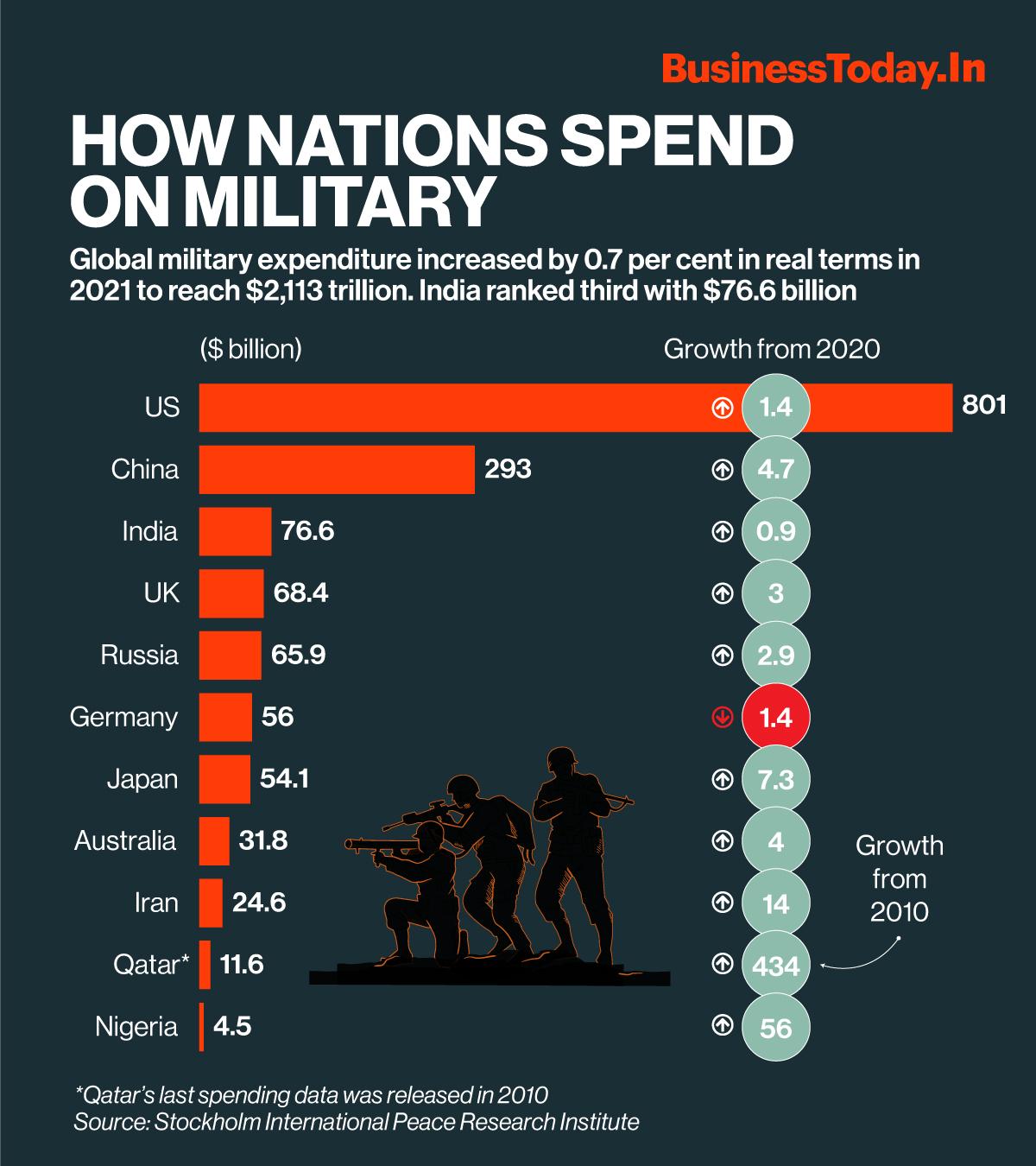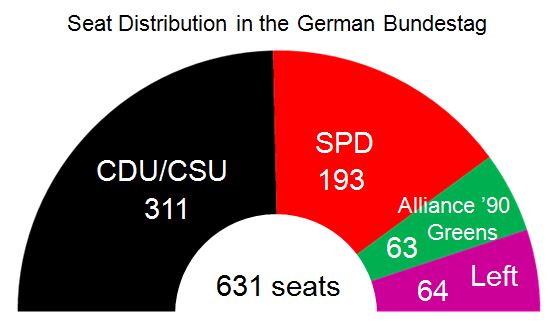Assessing The Surge In Global Military Spending: The European Perspective

Table of Contents
The Ukraine Conflict as a Catalyst
The ongoing conflict in Ukraine has acted as a significant catalyst for increased military spending across Europe. The unprovoked invasion by Russia prompted a fundamental reassessment of national security strategies and a renewed commitment to strengthening defense capabilities across the continent. This surge in military expenditure is not merely a reaction to immediate threats; it represents a long-term shift in European security priorities.
- Increased defense budgets across NATO member states: Many NATO allies have significantly increased their defense budgets, aiming to meet the 2% GDP target recommended by the alliance. This commitment reflects a growing recognition of the need for robust collective defense.
- Significant increase in military aid to Ukraine: The provision of substantial military aid to Ukraine represents a considerable financial commitment from numerous European nations. This aid includes weapons systems, ammunition, and other crucial military supplies, impacting national defense budgets.
- Accelerated modernization of military equipment and technologies: The conflict highlighted deficiencies in certain military capabilities, leading to accelerated programs for modernizing equipment and adopting cutting-edge technologies. This modernization drive demands considerable investment.
- Focus on strengthening national defense capabilities against potential threats: The invasion has spurred a renewed focus on bolstering national defense capabilities, including cyber security, intelligence gathering, and air and missile defense systems. These areas now receive significantly increased attention and funding.
NATO's Evolving Role and its Impact on European Spending
NATO's role has been significantly redefined following Russia's aggression in Ukraine. This has led to increased military cooperation and a renewed focus on collective defense, directly impacting individual member states’ spending on defense. The alliance's response to the crisis underscores the importance of transatlantic partnerships and collective security in the face of major threats.
- Increased defense spending targets set by NATO members: Many NATO members are striving to meet or exceed the 2% GDP target for defense spending, recognizing the need for enhanced military capabilities to deter potential aggression.
- Enhanced military exercises and joint operations: NATO has significantly increased the frequency and scale of military exercises and joint operations, improving interoperability and readiness among member states. This increased activity requires additional financial resources.
- Strengthened intelligence sharing and cooperation: The sharing of intelligence and improved cooperation among member states' intelligence agencies has become increasingly vital. These initiatives require investments in technology and personnel.
- Focus on deterring further Russian aggression: A major focus for NATO is enhancing its deterrence capabilities to dissuade further Russian aggression against its member states and partners. This requires substantial investments in defense capabilities.
Economic and Budgetary Implications for European Nations
The increase in military spending poses significant economic and budgetary challenges for many European nations. Balancing defense priorities with other crucial social and economic programs requires careful fiscal planning and difficult political decisions. The long-term economic effects of this spending increase require careful monitoring and analysis.
- Increased national debt in some countries due to military spending: The increased military expenditure has contributed to a rise in national debt in some European countries, raising concerns about long-term fiscal sustainability.
- Trade-offs between defense spending and social programs: The need to increase military spending often forces difficult trade-offs between defense priorities and other essential social programs, such as healthcare and education.
- Potential impact on economic growth and investment: Increased military spending may divert resources from other sectors of the economy, potentially impacting long-term economic growth and private investment.
- Debates over the optimal level of military spending: There are ongoing debates within European nations about the optimal level of military spending, balancing the need for security with the constraints imposed by budgetary limitations and economic realities.
Varying Responses Across European Nations
European nations are responding to the surge in global military spending in diverse ways, reflecting differing national security priorities, geopolitical assessments, and budgetary constraints. These diverse responses highlight the complexity of navigating this new security landscape within the European Union.
- Some countries have dramatically increased spending, while others maintain a more cautious approach: There is significant variation among European nations in the scale of their increased military spending, reflecting differences in perceived threats and fiscal capacity.
- Differences in military modernization strategies across member states: European nations are pursuing different military modernization strategies, focusing on specific capabilities based on their unique security needs and assessments.
- Impact of national political landscapes on defense policy decisions: National political landscapes and domestic political priorities significantly influence the defense policy decisions made by individual European nations.
- Ongoing debates about the EU's role in collective defense: The role of the European Union in collective defense remains a subject of ongoing debate, with varying views on the extent of its security and defense cooperation.
Conclusion
The surge in global military spending, particularly within Europe, is a direct consequence of evolving geopolitical realities. The Ukraine conflict has forced a reassessment of security priorities, leading to increased defense budgets, enhanced military cooperation within NATO, and significant budgetary challenges for European nations. Understanding the diverse responses and economic implications is crucial for navigating this complex landscape. The long-term consequences of this military spending increase remain to be seen, but it is clear that European security and the global balance of power have been fundamentally altered.
To stay informed on the ongoing developments in global and European military spending, continue to follow our analysis and insights. Understanding the implications of this surge in global military spending, particularly from a European perspective, is vital for informed decision-making and fostering a secure future.

Featured Posts
-
 Document Amf Seb Sa Cp 2025 E1021792 Publication Du 24 Fevrier 2025
Apr 30, 2025
Document Amf Seb Sa Cp 2025 E1021792 Publication Du 24 Fevrier 2025
Apr 30, 2025 -
 Coalition Negotiations Spd Seeks Party Approval In Germany
Apr 30, 2025
Coalition Negotiations Spd Seeks Party Approval In Germany
Apr 30, 2025 -
 Royals Defeat Guardians Garcias Homer And Witt Jr S Rbi Double Secure Victory
Apr 30, 2025
Royals Defeat Guardians Garcias Homer And Witt Jr S Rbi Double Secure Victory
Apr 30, 2025 -
 Coalition Deal Imminent German Parties To Reach Agreement Around Midday
Apr 30, 2025
Coalition Deal Imminent German Parties To Reach Agreement Around Midday
Apr 30, 2025 -
 Channel 4s Trespasses First Look At New Dramas Teaser Images
Apr 30, 2025
Channel 4s Trespasses First Look At New Dramas Teaser Images
Apr 30, 2025
